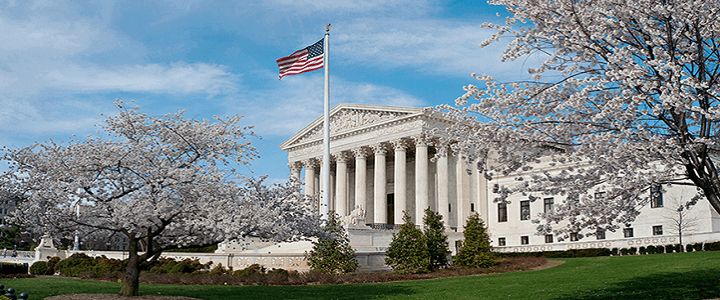The Supreme Court on Tuesday handed President Donald Trump — and the institution of the presidency itself — a resounding victory. In rejecting the claims that the so-called “travel ban” violated the Immigration and Naturalization Act and infringed on the plaintiffs’ Constitutional right to the free exercise of religion, the Court held that in matters of national security, the president need not explain his decisions “with sufficient detail to enable judicial review.”
The Court referred to its 2010 decision in Holder v. Humanitarian Law Project (in which Associate Justice Elena Kagan argued for the government as solicitor general), which held that “when the President adopts ‘a preventive measure . . . in the context of international affairs and national security,’ he is ‘not required to conclusively link all of the pieces in the puzzle before [courts] grant weight to [his] empirical conclusions.'”
It’s what he does, not what he says
The plaintiffs — The state of Hawaii and three individuals whose family members were prohibited from entering the country — argued that the president’s order deprived them of equal protection under the law and discriminated against them because of their religion. They pointed to several of Trump’s inflammatory statements made during the campaign and after assuming office, in an effort to prove that the action was motivated by animus towards Muslims, not legitimate national security concerns.
The Court utterly rejected that assertion. Writing for the majority (the four traditionally conservative justices and Associate Justice Anthony Kennedy) Chief Justice John Roberts summarized the argument, “Plaintiffs argue that this President’s words strike at fundamental standards of respect and tolerance, in violation of our constitutional tradition.” He concluded, however, that it was not up to the Court to “denounce” the president’s words, but to consider “the significance of those statements in reviewing a Presidential directive, neutral on its face, addressing a matter within the core of executive responsibility.”
The Court’s decision speaks to a point I’ve been making for months: in the final analysis, the president’s individual statements are instructive, but not authoritative. What matters is the way the final policy is crafted.
In this case, despite Trump’s call for a complete ban on Muslim entry into the U.S. during the campaign, and his grumblings about how he didn’t like the way his earlier attempts to institute this policy had been “watered down,” the final policy as expressed in his executive order was done in a way that reflected prudent deliberation.
“The Proclamation is expressly premised on legitimate purposes: preventing entry of nationals who cannot be adequately vetted and inducing other nations to improve their practices,” Roberts wrote. But he accurately pointed out that “The text says nothing about religion.”
Affirming the president’s authority
This case was just one example of the president’s opponents trying to enact policies through the courts that the are unable to enact through elections. This ruling threw cold water on the attempt, and sends a subtle hint to the rest of the system.
The Court held that particularly in matters of national security, “we cannot substitute our own assessment for the Executive’s predictive judgments on such matters.” National security is properly the realm of the president, and the courts ought not to be second-guessing the policy decisions of any president of any party absent a clear and compelling Constitutional violation.
In his concurring opinion, Associate Justice Clarence Thomas fired another shot across the bow of the lower courts. “I am skeptical that district courts have the authority to enter universal injunctions,” he wrote. District courts, especially in the last year and a half, have taken to issuing injunctions that apply not just to the case before them, but to all similar situations nationwide. Thomas doubts that they have this power either through the Constitution or through statute.
“If their popularity continues,” Thomas wrote, “this Court must address their legality.” I suspect we’ll see this addressed in the Court’s next session.




